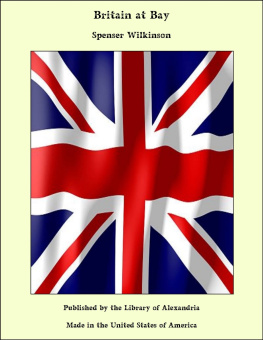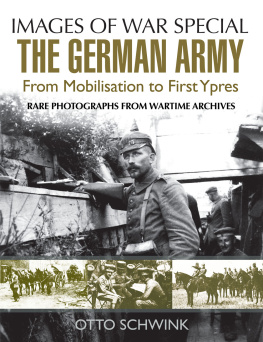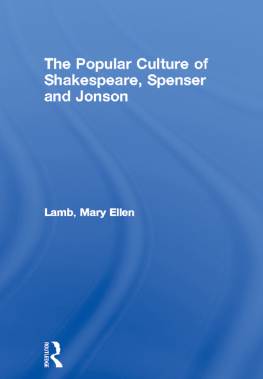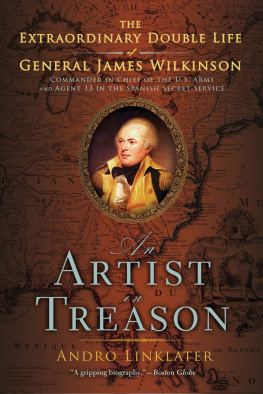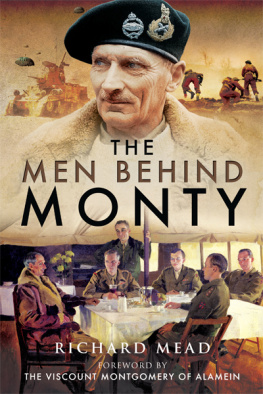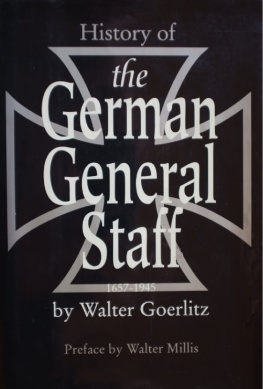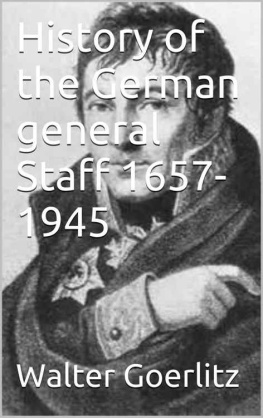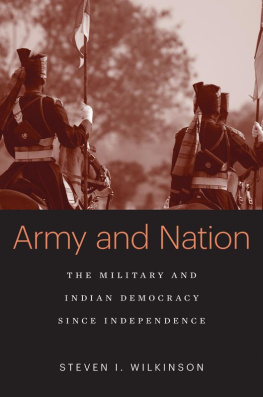THE
BRAIN OF AN ARMY
A POPULAR ACCOUNT
OF THE
GERMAN GENERAL STAFF
BY
SPENSER WILKINSON
NEW EDITION
WITH LETTERS FROM
COUNT MOLTKE AND LORD ROBERTS
WESTMINSTER
ARCHIBALD CONSTABLE
& CO 1895
BY THE SAME AUTHOR
THE COMMAND OF THE SEA
THE BRAIN OF A NAVY
THE GREAT ALTERNATIVE
and in conjunction with
SIR CHARLES W. DILKE, BART.
IMPERIAL DEFENCE
[Transcriber's note: the errata items below have been applied to this text.]
ERRATA.
page 9, line 6 for have read has
page 10, line 21, for occasion read occasions
PREFACE TO THE SECOND EDITION
Six years ago a Royal Commission, under the presidency of Lord Hartington, was known to be inquiring into the administration of the national defence. There was much talk in the newspapers about the Prussian staff, and many were the advocates of its imitation in this country. Very few of those who took part in the discussions seemed to know what the Prussian staff was, and I thought it might be useful to the Royal Commission and to the public to have a true account of that institution, written in plain English, so that any one could understand it. The essay was published on the 11th of February, 1890, the day on which the Report of Lord Hartington's Commission was signed.
The essential feature of the Prussian staff system consists in the classification of duties out of which it has arisen. Every general in the field requires a number of assistants, collectively forming his staff, to relieve him of matters of detail, to act as his confidential secretaries, and to represent him at places where he cannot be himself. The duties of command are so multifarious that some consistent distribution of functions among the officers of a large staff is indispensable. In Prussia this distribution is based on a thoroughly rational and practical principle. The general's work is subdivided into classes, according as it is concerned with administration and discipline or with the direction of the operations against the enemy. All that belongs to administration and discipline is put upon one side of a dividing line, and upon the other side all that directly affects the preparation for or the management of the fightingin technical language, all that falls within the domain of strategy and tactics. The officers entrusted with the personal assistance of the general in this latter group of duties are in Prussia called his "general staff." They are specially trained in the art of conducting operations against an enemy, that is in the specific function of generalship, which has thus in the Prussian army received more systematic attention than in any other. In the British army the assistants of a general are also grouped into classes for the performance of specific functions in his relief. But the grouping of duties is accidental, and follows no principle. It has arisen by chance, and been stereotyped by usage. The officers of a staff belong to the adjutant-general's branch or to the quartermaster-general's branch, but no rational criterion exists by which to discover whether a particular function falls to one branch or to the other. That this is an evil is evident, because it is manifest that there can be no scientific training for a group of duties which have no inherent affinity with one another. The evil has long been felt, for the attempt has been made to remedy it by amalgamating the two branches in order to sever them again upon a rational plane of cleavage.
But while the essence of the Prussian general staff lies deeply embedded in the organization of the Prussian army, the interest of the general public has been attracted by the fact that the great strategist to whom the victories of 1866 and 1870 are ascribed was not the commander of the Prussian army, but merely the chief of the general staff of a royal commander-in-chief. It may well be doubted whether this feature of the Prussian system is suitable for imitation elsewhere. The Germans themselves evidently regard it as accidental rather than essential, for in organizing their navy they have, after much experiment and deliberation, adopted a different plan. They have appointed their chosen admiral to be, not chief of the staff to an Emperor who in war, as he takes the field with the army, cannot undertake the command of the navy, but to be "the commanding admiral."
I refrained in the first edition of this essay from drawing from the German institution which it describes a moral to be applied to the British army, and was content with a warning against overhasty imitation. At that time the nature of the relation between Moltke and the King was still to some extent veiled in official language, and nothing so far as I am aware had been published which allowed the facts to rest upon well authenticated, direct evidence as distinguished from inference. Since then the posthumous publication of Moltke's private correspondence,[] has thrown a flood of light upon the whole subject. I had the good fortune to be furnished with an earlier clue. As soon as my essay was ready for the press I ventured to send a proof to Count Moltke, with a request that he would allow me in a dedication to couple his name with studies of which his work had been the subject. He was good enough to reply in a letter of which the following is a translation:
BERLIN, January 20, 1890.
DEAR SIR,
I have read your essay on the German general staff with great interest.
I am glad that on p. 63 you dispose of the ever-recurring legend according to which before every important decision a council of war is assembled. I can assure you that in 1866 and in 1870-71 a council of war was never called.
If the commander after consultation with his authorized adviser feels the need of asking others what he ought to do, the command is in weak hands.
If King William I. ever really used the expression attributed to him on p. 58, he did himself a great injustice. The king judged the perpetually changing military situation with an uncommonly clear eye. He was much more than "a great strategist." It was he who took upon himself an immeasurable responsibility, and for the conduct of an army character weighs more than knowledge and science. I think your excellent work would lose nothing if that passage were omitted.
You touch on p. 112[] upon the relation between the commander and the statesman. Neither of the two can set up for himself in advance a goal to be certainly reached. The plan of campaign modifies itself after the first great collision with the enemy. Success or failure in a battle occasions operations originally not intended. On the other hand the final claims of the statesman will be very different according as he has to reckon with defeats or with a series of uninterrupted victories. In the course of the campaign the balance between the military will and the considerations of diplomacy can be held only by the supreme authority.
It has not escaped your penetration that a general staff cannot be improvised on the outbreak of war, that it must be prepared long beforehand in peace, and be in practical activity and in close intercourse with the troops. But even that is not enough. It must know who is to be its future commander, must be in communication with him and gain his confidence, without which its position is untenable.
Great is the advantage if the head of the State is also the leader in war. He knows his general staff and his troops, and is known by them. In such armies there are no pronunciamentoes.
The constitution, however, does not in every country admit of placing the head of the State at the head of the army. If the Government will and can select in advance the most qualified general for the post, that officer must also be given during peace the authority to influence the troops and their leaders and to create an understanding between himself and his general staff. This chosen general will seldom be the minister of war, who during the whole war is indispensable at home, where all the threads of administration come together.


